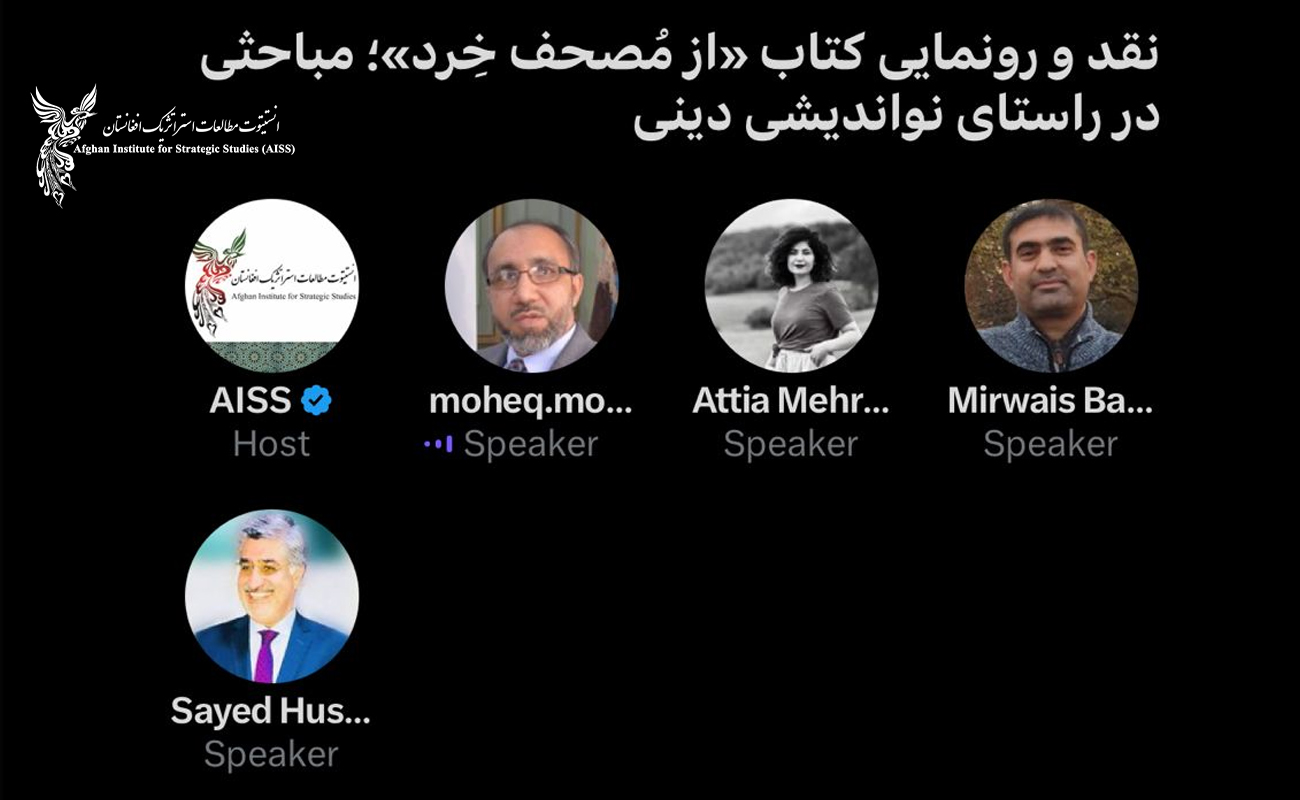Book Launch & Review: "From the Scripture of Reason": Discussions on Religious Modernism
On Sunday, October 27, 2024, the Afghan Institute for Strategic Studies hosted a space event to review and analyze the book "From the Scripture of Reason" by Mohammad Moheq. Dr. Mirwais Balkhi, a university professor, and Professor Sayed Hussein Eshraq, a researcher in philosophy and sociology, took part in the discussion, examining the book and its contributions to religious enlightenment. This book was published by the Kabul Book Store.
Dr. Mirwais Balkhi emphasized the necessity of studying religion rationally and intellectually. He believes there is an urgent need for rationalist religious literature in the Persian Sunni world, especially in Afghanistan.
According to Dr. Balkhi, while the Arab world has a more extensive body of religious literature, the Persian Sunni context lacks this.
Posing the question, “What is the greatest ailment of our religious underdevelopment?” Dr. Balkhi responded, “The collapse of our theological belief system.” He believes that in the current environment, where an eclectic approach to religious discussions is gaining importance, writers must address religious issues more thoughtfully, substantiating their theses with rational and scriptural evidence.
While commending the author's efforts, Dr. Balkhi also pointed out some shortcomings of the book, including a rushed writing style, scattered topics, and the inclusion of some irrelevant articles.
Professor Sayed Hussain Eshraq, a researcher in philosophy and sociology, critiqued the book's discursive space. He felt the book could have benefited from a more cohesive research structure, with each article providing its own introduction, key terms, and references. Additionally, Eshraq emphasized the need for the author to clarify the research methodology.
In response to the critiques, Mohammad Moheq, the author, addressed some parts of the book and answered questions.
The review of "From the Scripture of Reason" highlighted that rethinking religious concepts remains a significant concern for Afghan intellectuals and researchers. While the book makes a commendable effort in this regard, it still requires further refinement and the resolution of its existing shortcomings.

